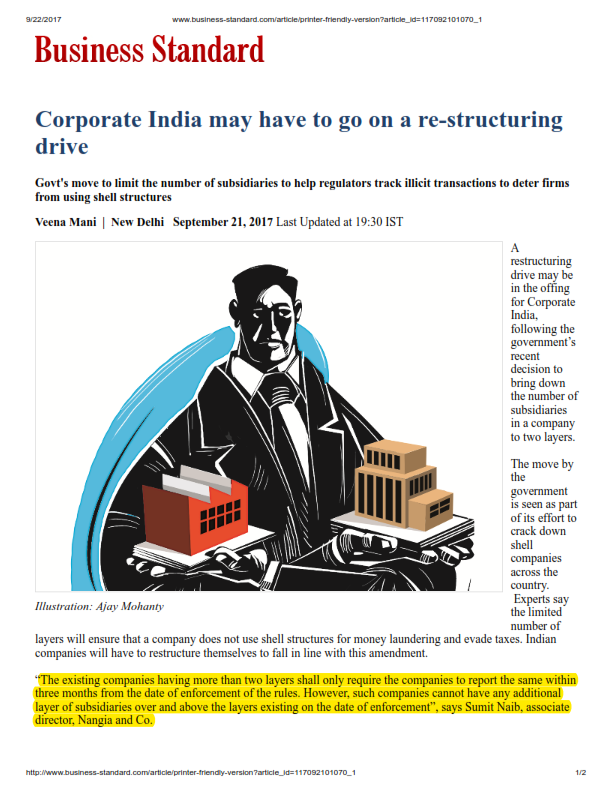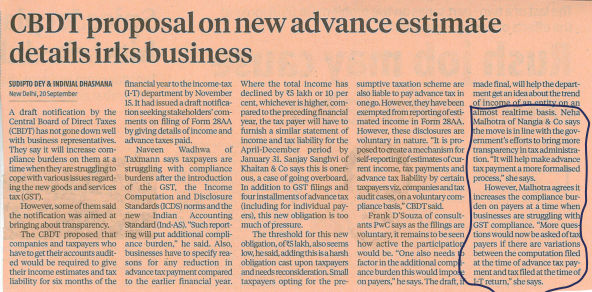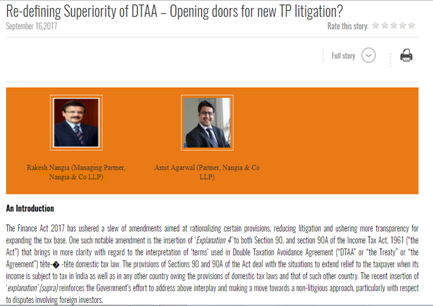
Corporate India may have to go on a re-structuring drive- Sumit Naib
A restructuring drive may be in the offing for Corporate India, following the government’s recent decision to bring down the number of subsidiaries in a company to two layers. The move by the government is seen as part of its effort to crack down shell companies across the country.
Sumit Naib, Associate Director shares his views on aforementioned story for Business Standard.








